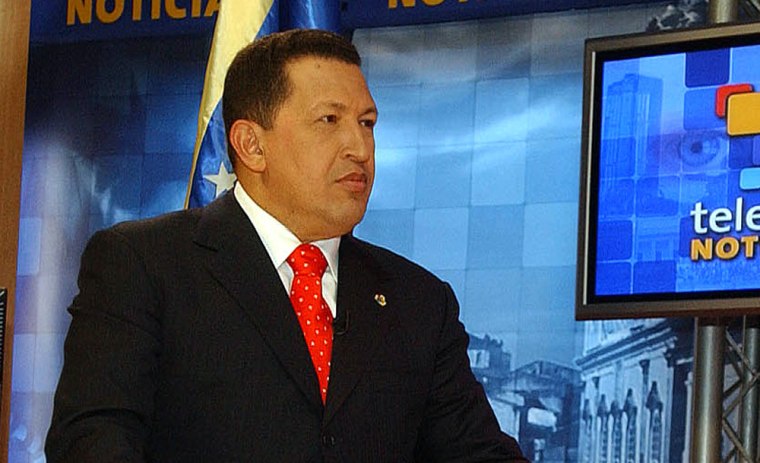For a socialist like Venezuelan President Hugo Chavez, it sure helps to have lots of oil money. It’s that wealth that has helped him make friends across the Americas, while fraying ties with the United States.
Venezuela, the world’s No. 5 oil exporter, is a key crude supplier to the U.S. market. Ties between the two countries have deteriorated since Chavez, a close ally of Cuban President Fidel Castro, came to office seven years ago promising a socialist revolution.
That doesn’t sit well with President Bush, who arrived at this seaside resort for the Summit of the Americas on Thursday — the same day Venezuela staged a mock U.S. invasion of its own territory. The event is the latest exercise intended to prepare soldiers and civilian volunteers for what Chavez says is a possible attack by American troops.
U.S. officials deny any such plan, but Chavez says it’s best to be ready — just in case.
Buys Argentine bonds
Chavez has used Venezuela’s oil wealth to push for regional solidarity, offering fuel with preferential financing to various Caribbean and Latin American countries.
He also bought $950 million this year in Argentine bonds, saying it was a step toward creating a so-called Bank of the South to help provide financing to the region.
Chavez is expected to push that banking initiative at the two-day summit.
He has also invested in regional companies and television stations.
Some in the Bush administration have expressed concern about Venezuela’s desire to build a nuclear power reactor using Argentine technology.
And, after Chavez said he might share his U.S.-made F-16 fighter jets with Cuba and China, U.S. Ambassador to Venezuela William Brownfield said that decision would need U.S. approval.
Soccer legend a supporter
Chavez also has street support. In Argentina, hundreds of protesters — including Argentine soccer legend Maradona, who donned an anti-Bush T-shirt, and Bolivian presidential hopeful Evo Morales — boarded a train late Thursday to join the thousands who had already converged on this coastal resort.
Santiago Zamora, a 30-year-old biology student from northern Argentina, sported a red t-shirt of Che Guevara, the Argentine who helped Castro take power in Cuba.
“We are going to fight against all forms of imperialism,” Zamora said of the protest set for Friday.
